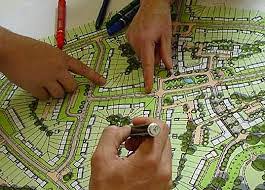The Role of Urban Planners in Shaping Sustainable Cities
Urban planners play a crucial role in designing and developing cities that are sustainable, liveable, and resilient. These professionals are responsible for creating plans and policies that guide the growth and development of urban areas, taking into account factors such as population growth, infrastructure needs, environmental impact, and social equity.
One of the key responsibilities of urban planners is to balance the competing interests and needs of various stakeholders, including residents, businesses, government agencies, and developers. By engaging with these groups and conducting thorough research and analysis, urban planners can create comprehensive plans that address the complex challenges faced by modern cities.
Urban planners also play a critical role in promoting sustainable development practices. This includes advocating for compact urban design, efficient transportation systems, green spaces, renewable energy sources, and affordable housing options. By incorporating these elements into their plans, urban planners can help reduce carbon emissions, improve air quality, enhance public health, and create more inclusive communities.
In addition to designing physical spaces, urban planners also focus on social issues such as poverty alleviation, social inclusion, and community engagement. They work to ensure that urban development projects benefit all members of society and do not disproportionately impact vulnerable populations. By fostering collaboration between different groups and promoting participatory decision-making processes, urban planners can help build stronger and more cohesive communities.
Overall, urban planners play a vital role in shaping the future of our cities. Their work is essential for creating environments that are sustainable, equitable, and enjoyable for all residents. By embracing innovation, collaboration, and a commitment to long-term planning, urban planners can help ensure that our cities thrive now and for generations to come.
Six Essential Tips for Urban Planners: Building Inclusive, Sustainable, and Innovative Cities
- Consider the needs and preferences of diverse communities when planning urban spaces.
- Promote sustainable development practices to create environmentally friendly cities.
- Collaborate with architects, engineers, and policymakers to ensure cohesive urban design.
- Stay informed about current trends in urban planning and incorporate innovative ideas into projects.
- Prioritize public transportation and walkability to reduce traffic congestion and promote healthier lifestyles.
- Engage with stakeholders through public consultations to gather feedback and improve urban planning decisions.
Consider the needs and preferences of diverse communities when planning urban spaces.
When planning urban spaces, it is essential for urban planners to consider the needs and preferences of diverse communities. By taking into account the unique characteristics and requirements of different demographic groups, such as varying cultural backgrounds, ages, abilities, and socioeconomic statuses, urban planners can create inclusive and accessible environments that cater to the entire population. This approach not only fosters social cohesion and community well-being but also ensures that urban spaces are designed to be truly representative and responsive to the diverse needs of all residents.
Promote sustainable development practices to create environmentally friendly cities.
Urban planners play a pivotal role in promoting sustainable development practices to foster the creation of environmentally friendly cities. By advocating for initiatives such as compact urban design, efficient transportation systems, green spaces, renewable energy sources, and affordable housing options, urban planners can significantly reduce carbon emissions, improve air quality, enhance public health, and create more inclusive communities. Through their strategic planning and implementation of sustainable solutions, urban planners contribute to the long-term environmental health and resilience of cities, ensuring a greener and healthier future for all residents.
Collaborate with architects, engineers, and policymakers to ensure cohesive urban design.
Collaboration with architects, engineers, and policymakers is a crucial tip for urban planners to ensure cohesive urban design. By working closely with these key stakeholders, urban planners can integrate diverse expertise and perspectives into their planning processes. Architects bring creative design solutions, engineers offer technical knowledge on infrastructure and sustainability, while policymakers provide insights on regulations and governance. This collaborative approach helps create holistic urban plans that address the complex needs of cities while promoting sustainability, functionality, and aesthetics in a harmonious way.
Stay informed about current trends in urban planning and incorporate innovative ideas into projects.
To excel as urban planners, it is crucial to stay informed about current trends in urban planning and to integrate innovative ideas into projects. By keeping abreast of the latest developments in the field, urban planners can adapt to changing needs and challenges in modern cities. Embracing innovative concepts and approaches allows them to create forward-thinking solutions that promote sustainability, efficiency, and inclusivity in urban development projects. Incorporating fresh ideas not only enhances the quality of their work but also ensures that they remain at the forefront of shaping vibrant and resilient cities for the future.
Prioritize public transportation and walkability to reduce traffic congestion and promote healthier lifestyles.
Prioritising public transportation and enhancing walkability are key strategies recommended for urban planners to alleviate traffic congestion and encourage healthier lifestyles in cities. By investing in efficient public transport systems and creating pedestrian-friendly environments, urban planners can reduce reliance on private vehicles, leading to fewer traffic jams and lower emissions. Additionally, promoting walking and cycling not only improves physical health but also fosters a sense of community and connectivity among residents. Embracing these principles can help create more sustainable and liveable urban spaces for all.
Engage with stakeholders through public consultations to gather feedback and improve urban planning decisions.
Engaging with stakeholders through public consultations is a crucial tip for urban planners to gather valuable feedback and enhance the quality of urban planning decisions. By involving residents, businesses, community groups, and other stakeholders in the planning process, urban planners can gain insights into the needs and preferences of the people who will be directly affected by proposed developments. This participatory approach not only fosters transparency and accountability but also ensures that urban planning decisions are informed by diverse perspectives and priorities, leading to more inclusive and effective outcomes for the community as a whole.
